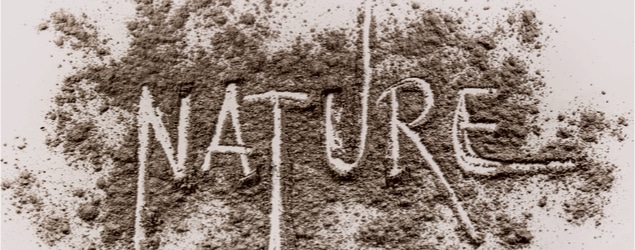Excuse Me, Waiter, There Is DNA In My Soup

Just Label It, a group that pushes for mandatory labels on all foods containing ingredients grown from genetically engineered seeds, repeatedly tells us that American consumers overwhelmingly support such laws. Front and center and in bold text on their website, we are told: “Studies show that more than 90% of Americans support mandatory labeling of genetically modified (GMO) foods.”
A recent survey, conducted by Jayson Lusk at the Department of Agricultural Economics at Oklahoma State, broadly confirmed these results. Unsurprisingly, this survey found that 82 percent of Americans would support “mandatory labels on foods produced with genetically engineering.”
But have you ever considered why a majority of Americans check that box on the survey saying they would support mandatory GMO labeling?
The Oklahoma State survey inadvertently shed light on that very question by asking another clever question — the survey found that 80 percent of Americans would also support mandatory labeling of food containing DNA.
Hmmm.
DNA stands for deoxyribonucleic acid, the so-called building blocks of life. DNA is contained in every cell of your body and in the cells of every plant, animal and other living organism. Since the vast majority of what we eat comes from plants and animals, virtually every food contains it. I know I’d be hard pressed to make somebody a DNA-free meal (salt soup anyone?)! Despite it being a three letter acronym, there is nothing scary about DNA or about eating it.
Reminds me of the petitions to ban “dihydrogen monoxide” that occasionally make the rounds. Dihydrogen monoxide, of course, is just the scientific name for “water,” but for people who aren’t scientifically versed, it sounds like some pretty scary stuff.
Indeed, Ilya Somin, professor at George Mason University, made a similar joke about what a mandatory DNA label would look like:
WARNING: This product contains deoxyribonucleic acid (DNA). The Surgeon General has determined that DNA is linked to a variety of diseases in both animals and humans. In some configurations, it is a risk factor for cancer and heart disease. Pregnant women are at very high risk of passing on DNA to their children.
That’s pretty funny. It also makes it clear that we can’t put much stock in the negative reaction that American consumers seem to have to the acronym “G.M.O.”
But groups that push for mandatory GMO labeling use survey results like these to play on consumers’ ignorance of scientific issues in the guise of reporting wide-spread support of their position.
“GMO” may sound scary to your average grocery store shopper, but the truth is that they probably ate a GMO for breakfast. Approximately 80 percent of foods on grocery store shelves contain genetically engineered varieties of corn, soybeans and other fruits and vegetables. People (and feed animals) have eaten trillions of meals containing GMOs since farmers first pushed biotech seeds into the ground about 20 years ago. These foods haven’t caused a single ill health effect.
GMO stands for “genetically modified organism.” The term is generally used to refer to an organism, like a plant, that has had specific changes introduced into its DNA. Using their understanding of biology, scientists are able to use technology to make small, targeted improvements to foods on the genetic level, engineering crops to help them repel insects in the field, for example. There’s nothing scary about scientists successfully improving foods to help farmers grow them more plentifully.
“Without labeling of GMOs, we cannot make informed choices about our food,” claims the Just Label It website. This survey reinforces what a grotesque claim that actually is. Rather than informing consumers about the benefits of genetically engineered foods, or informing them of the actual safety record of genetically engineered foods, activists hide behind the guise of wanting more informed consumers to make better choices about the foods they eat, all the while advocating for a label that consumers will see and be afraid of.
That’s what anti-GMO activists and proponents of mandatory labeling laws count on — that they will be able to scare the American shopper out of buying products that are in reality just as innocuous as water — or DNA.
You can read more about what I say about mandatory labeling laws here. And a recent article on Gawker makes some excellent points on labeling.



